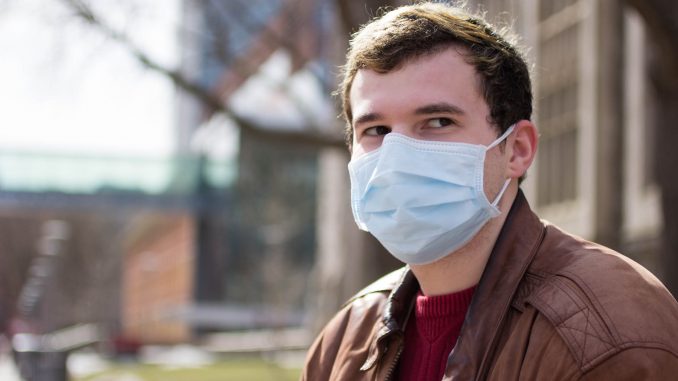
Spring is upon us: the sun is shining, the temperature is more than 60 degrees and the groups of students congregating on Beury Beach are back.
But along with people coming out of hibernation, COVID-19 is making a resurgence.
Recently, the number of COVID-19 cases in Philadelphia was well above the two-week average, peaking at 701 cases on April 5 for the first time since January. There are currently 125 active cases at Temple University as of April 12, The Temple News reported.
In addition, more than one-third of new COVID-19 cases in Philadelphia were caused by variants of COVID-19 as of March 30, Fox 29 reported.
As the weather warms up, this does not mean we should let our guard down. Even as Philadelphia moves toward expanding vaccine eligibility to all adults 16 years and older starting April 19, students should double down and double mask this spring.
On March 29, the director of the Centers for Disease Control and Prevention warned Americans of another wave of COVID-19 infections after several states retracted their mask mandates and loosened COVID-19 restrictions amid the rising spread of COVID-19 variants, NPR reported.
Wearing a second mask can help close any gaps and better fit one’s face, said Abby Rudolph, an epidemiology and biostatistics professor.
“The importance of mask wearing has been shown to benefit both the mask-wearer and the recipient,” Rudolph said. “A high-quality mask reduces the particles that are expelled and the amount of particles that you inhale.”
On Jan. 25, White House advisor Dr. Anthony Fauci recommended Americans wear two masks for maximum protection, CNBC News reported.
Largely because it was cold, I was opting to wear two masks in the winter, but little did I know I was protecting myself more than I was by wearing just one.
If an infected person and an uninfected person both wear either a tightly fitted surgical mask or a cloth mask over a disposable mask, transmission rates can be reduced by up to 96.5 percent, the New York Times reported.
Dan Fare, a senior film and media arts major, started double masking because he has asthma, which increases his risk of having more severe COVID-19 symptoms, and continues to wear two masks despite being partially vaccinated.
“If I’m taking public transport, I usually like to wear two masks,” Fare said.
Zacharia Arsalane, a junior music major, works part time as a supervisor at a coffee shop and wears a mask and a face shield during each shift. Coworkers have had issues with customers refusing to wear masks, he said.
“If there’s extra steps I can take to keep people healthy, I should do it. Everybody has got something to lose,” Arsalane said.
But essential workers, immunocompromised students or others at greater risk for COVID-19-related complications are not the only ones who should double mask.
The CDC recommends everyone wear a two-layered cloth mask or a disposable mask underneath a cloth mask.
Wearing a high-quality mask is more important than ever, as the variants can be up to 70 percent more transmissible, AARP reported.
College campuses are a petri dish for COVID-19 and its variants, said Matthew Rankin, a media relations assistant with the Philadelphia Department of Public Health.
“Students can take it upon themselves to remind each other and be that messenger for us in the fight against the spread of COVID-19,” Rankin said.
While students are experiencing burnout after living through more than a year of the pandemic, this is not the time to be impatient, Rudolph said.
“Wearing an effective mask is crucial to ending this pandemic as soon as possible and returning life back to normal,” Rudolph added. “Morale may be low these days, but as Temple students, we know that perseverance conquers, and that is exactly what we must do to counteract this virus.”


Idiot! Why not quadruple mask? Why not put 10 masks on? Idiocy grows bigger.